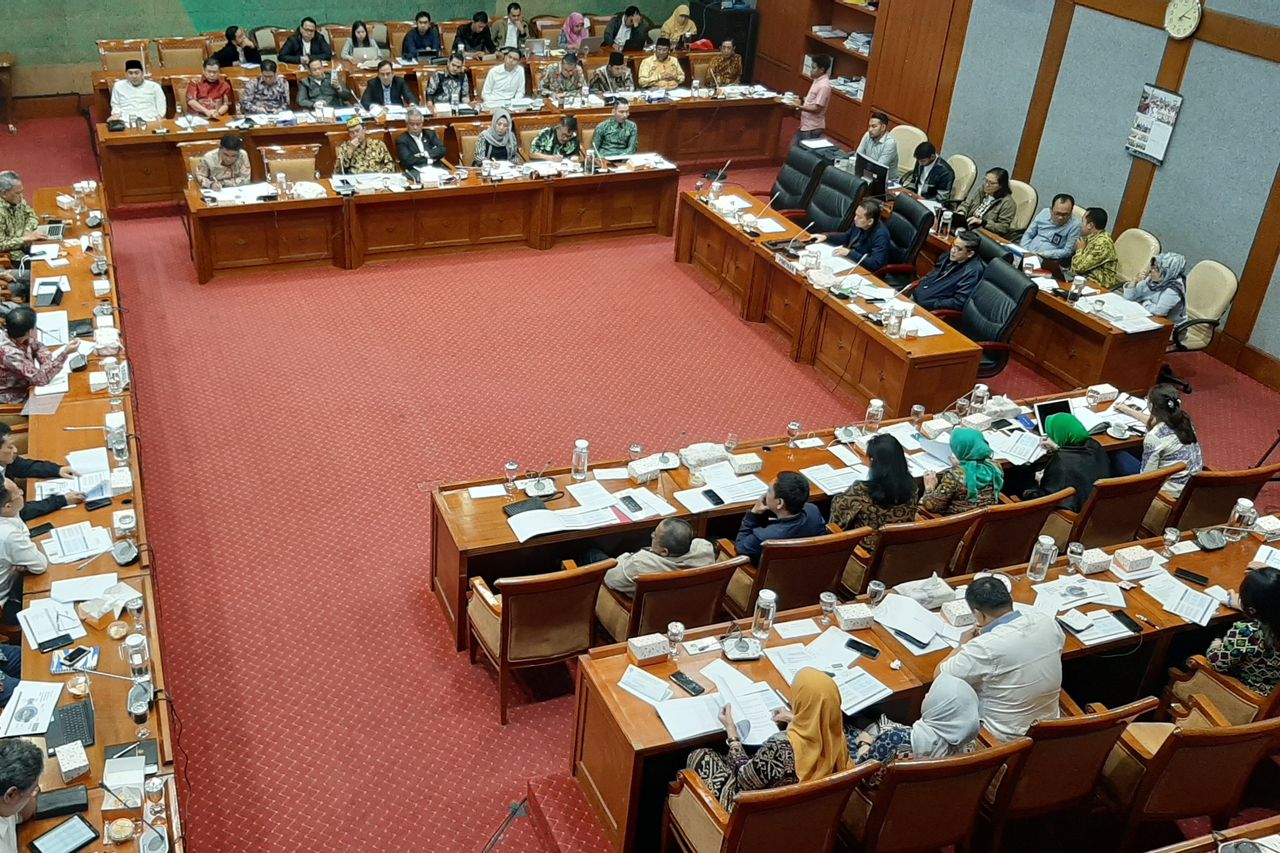DPR Asks Minister Of Education And Culture Not To Hurry To Remove National Examination

JAKARTA - Commission X of the House of Representatives (DPR) held a working meeting with the Minister of Education and Culture (Mendikbud) Nadiem Makarim regarding the plan to eliminate the National Examination (UN) by 2021.
In the meeting, Commission X member Sudewo criticized Nadiem's policies regarding the UN. According to him, the Ministry of Education and Culture should not have been careless about this issue.
"In my opinion, the Minister, do not rush to declare this and do not rush to abolish the national exam. There is something we need to explore here. What is the draft, the idea, and even this will become a decision. white, because the Minister has declared it, "he said in a meeting at the DPR Building, Parliament Complex, Senayan, Jakarta, Thursday, December 12.
This Gerindra politician said the elimination policy should be studied more comprehensively by listening to all stakeholders. Moreover, the proposed assessment concept to replace the UN has not yet been tested.
"Don't let an idea seem like a good one, but its implementation is counterproductive. It's worse than the national exam itself," he said.
Sudewo admitted that he did not agree that the National Examination was considered only as content mastery, not reasoning competence. More than that the National Examination can describe a person's abilities. He assessed, the problem lies not with the UN but at the technical level of implementation that must be evaluated.
"How can this national exam continue to run. But the competence of rationalizing can be implemented," he explained.
Then, Sudewo also questioned how the education ministry would carry out a selection system if there was no national exam. In addition, he also touched on the assessment benchmarks for schools and students.
"If this national exam is transformed into a competency assessment, I will question what the selection system for secondary schools will be? Is it also a competency assessment? What instruments are used to conduct competency assessments that guarantees avoidance of subjectivity?" he explained.
Sudewo also asked Nadiem to make this a study material. According to him, if Nadiem decides to abolish the UN, then he must be able to ensure that there is no element of subjectivity in the system.
"Do not let the subjectivity become very thick, there is an element of suspicion in the community towards schools. Which ultimately leads to anarchism in society," he said.
Previously, the Chairman of the Indonesian Parliament, Puan Maharani, asked the Minister of Education and Culture (Mendikbud) Nadiem Makarim not to rush into implementing the policy of eliminating the National Examination (UN). According to him, the policy of eliminating the National Examination should not be detrimental to students and their parents, and ignore the improvement of the quality of Indonesian teachers.
Puan also asked Nadiem to explain in more detail the policy to eliminate the UN to the public. He considered, the public still could not fully understand the policy to abolish the UN. This is because only based on the information broadcast through the mass media.
"I ask or I hope that Nadiem can actually explain what his thoughts are related to this UN," he said.
This PDIP politician also admitted that he still had a number of questions related to the policy to abolish the National Examination which was to be taken by Nadiem. One of them is a question about the basic assessment questions for continuing education from high school to tertiary level.
"What we have to see or ask the Minister of Education and Culture is what are the criteria for graduating a child in SMA or SMP or SD. From that level, if there is no National Examination, then if we want to go to college, what will we use?" he said.
Puan's attitude as Chairman of the DPR is different from President Jokowi regarding the abolition of the UN. According to Jokowi, the Minimum Competency Assessment and Character Survey which are a substitute for the National Examination are useful for evaluating the level of education in Indonesia.
"From that it can be used as an evaluation. Our education has reached what level, to which level. Later it has been calculated, calculated," said Jokowi.
